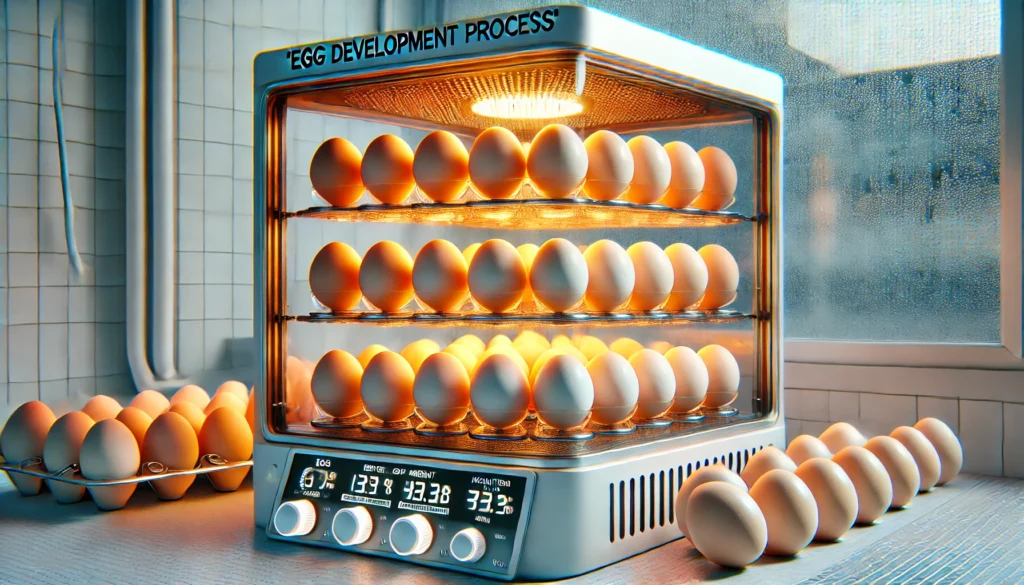Eggs are a staple in kitchens all around the world, used in everything from breakfast dishes to baked goods. However, handling and preparing eggs involves more than meets the eye. One fascinating technique that has caught the attention of chefs and food enthusiasts alike is the egg deleup process. But what exactly is it? Why do people has become language proficiency substantial, and in what manner will that operate? In this article, we’ll crack open the egg deleup process, explore how it works, and dive into its practical applications.
What is the Egg Deleup Process?
The egg deleup process refers to a specific method used to alter or preserve eggs for culinary or industrial purposes. While the name may sound unfamiliar to some, the process involves steps that make eggs easier to handle, store, or prepare, ensuring they maintain their freshness and quality for longer periods.
The term “deleup” may vary in meaning depending on the specific application, but it is most commonly associated with techniques in food preservation or egg preparation, such as pasteurization, controlled cooking, or even specialized storage methods.
How Does the Egg Deleup Process Work?
The egg deleup process generally involves several steps to treat and process eggs in a way that preserves their quality. The following constitutes a rudimentary understanding regarding the way it operates:
- Initial Inspection: The eggs are first inspected for quality, checking for cracks or other defects that could affect the process.
- Cleaning: In many cases, eggs are gently cleaned to remove dirt, bacteria, or any surface contaminants that may be present.
- Temperature Control: The eggs are exposed to controlled heat, which helps kill harmful bacteria without cooking the egg. This step is critical in ensuring that the eggs remain safe to eat and free from bacteria like Salmonella.
- Cooling and Storage: After being heated, the eggs are quickly cooled to prevent overcooking. At this stage, they’re ready for storage or further processing, depending on their intended use.
In some applications, the egg deleup process may also involve packaging eggs in a way that maximizes freshness and extends their shelf life.
Why Is the Egg Deleup Process Important?
The egg deleup process has a range of benefits, especially in the food industry. Here’s why it’s important:
- Safety and Hygiene: One of the most significant benefits is safety. By treating eggs with heat, the process helps eliminate bacteria that can cause foodborne illnesses, such as Salmonella. This makes the eggs safer for consumption, especially when used in dishes that may not be fully cooked, like sauces or dressings.
- Longer Shelf Life: Another major advantage is the preservation of eggs. The process helps extend the shelf life of eggs, reducing the risk of spoilage and waste. For both commercial food production and households, this can be incredibly beneficial in reducing food loss.
- Consistency in Quality: By controlling the conditions under which eggs are prepared and stored, the egg deleup process ensures consistent quality. This is particularly crucial for establishments like bakeries and restaurants that are dependent upon big amounts of eggs.
Common Mistakes to Avoid
While the egg deleup process is relatively straightforward, there are a few common mistakes that can lead to less-than-ideal results. Following are a few considerations that one ought to warned comprising the following:
- Overheating: If the eggs are exposed to too much heat for too long, they may begin to cook instead of just being pasteurized. This can affect both the texture and taste of the egg.
- Improper Cooling: After heat treatment, it’s important to cool the eggs quickly to stop any further cooking. Slow cooling can lead to the eggs becoming overcooked or losing their quality.
- Skipping Inspection: Not inspecting eggs before starting the process can result in contamination or defects going unnoticed. Always check the eggs for cracks or any signs of damage before starting.
By paying attention to these details, you can ensure that the egg deleup process goes smoothly, resulting in fresher, safer eggs.
Last Words on egg deleup process
In summary, the egg deleup process is an important method for treating eggs in a way that preserves their freshness, safety, and quality. Whether you’re in the food industry or simply someone who enjoys cooking at home, understanding this process can make a big difference in the way you handle eggs.
The next time you purchase eggs or use them in a recipe, consider the importance of preservation and food safety. By applying the egg deleup process, you can enjoy eggs that are fresher for longer and safer to eat.
So, have you ever tried this process in your kitchen?Or are you thinking about implementing it in your company? Add something to say underneath concerning your suggestions as well as observations!
Frequently Asked Questions (FAQs)
What is the egg deleup process?
The egg deleup process is a technique used to preserve, treat, or alter eggs to improve their safety, quality, and shelf life. It often involves controlled heating and cooling to eliminate harmful bacteria without cooking the egg.
Why is the egg deleup process important?
It ensures eggs are free from harmful bacteria like Salmonella, extends their shelf life, and maintains consistent quality, making them safer for consumption and more reliable for food production.
How does the egg deleup process work?
The process involves cleaning, pasteurizing, and quickly cooling eggs. It may also include packaging them in ways that maximize freshness and reduce waste.
Can the egg deleup process change the taste or texture of eggs?
If done correctly, the egg deleup process should not affect the taste or texture significantly. However, improper handling or overheating may result in a slight change in texture.
Is the egg deleup process used in commercial food production?
Yes, it is widely used in the food industry, especially in commercial kitchens, bakeries, and egg products, to ensure egg safety, consistency, and longevity.
Article Recommendations:
Bobby Gowens La Preferida – A Taste of Authentic Mexican Cuisine
How the Gutenkit Bento Box Can Simplify Your Lunch Routine
MF Akva Kristal Mojito Straw 500ml: A Refreshing Twist on Hydration









